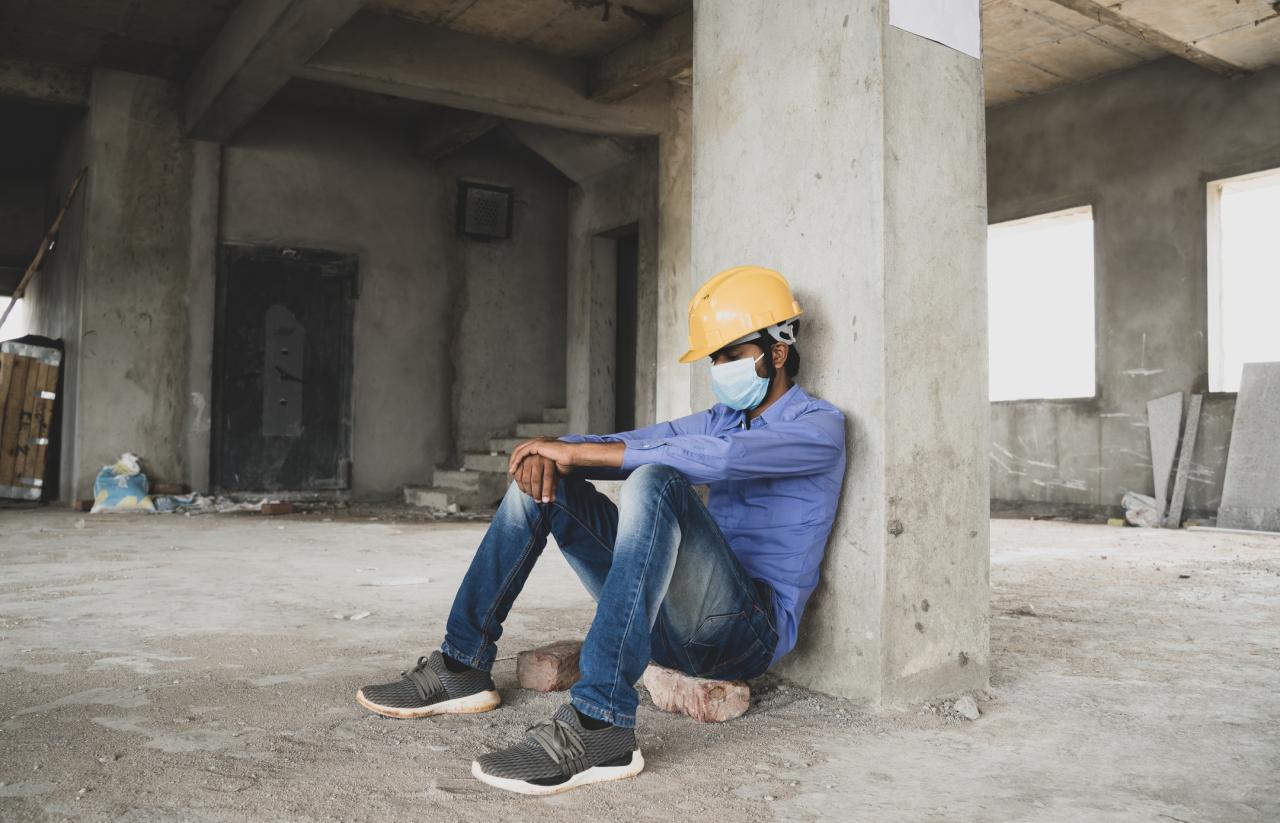
When India announced its nation-wide lockdown in March 2020, migrant workers, among the country's poorest citizens, had a particularly difficult time adhering to lockdown measures. With just a few days’ worth of savings to carry them through this period of economic inactivity, many faced a stark choice: either rely on the authorities for their basic sustenance (especially food and shelter), or travel back home while risking contracting the virus along the way. Many chose the latter, undertaking lengthy and dangerous journeys on foot as public transportation was halted.
The problem of migrant workers’ access to food in a pandemic is not unique to India. In African countries including Nigeria, Kenya and Ghana, a lack of clarity over confinement rules and other logistics hurdles froze supply chains, creating both wastage and shortages. Western economies were not spared, either. In many states in the United States, food banks were overrun, requiring uniformed guardsmen to ensure the safety of the volunteers. In the European Union, undocumented migrants faced greater difficulties in accessing any sort of help, from healthcare to food distribution.
Meanwhile, India faces the issue of scale. More than 40 million migrant labourers – more than the entire population of Canada – can be found in and out of their native states, seeking jobs as domestic helpers, drivers and gardeners, or as day workers on construction sites.
Since 1947, the Indian government has had a food ration system in place which grants access to staples at heavily subsidised prices, with a focus on the poorest since 1997. Traditionally, migrants cannot access rations in their target regions, as the rations in a given subdistrict (two levels below a state) cater only to local residents in that subdistrict. In recent years, some state governments have begun to allow all their residents to obtain rations anywhere within that state (intra-state portability). A cluster of states have also allowed out-of-state migrants in those states to obtain rations within those states (inter-state portability).
In our paper, “Food Security and Human Mobility During the COVID-19 Lockdown”, we use mobility data acquired from Facebook, in collaboration with the platform’s ‘Data for Good’ team, to study human mobility patterns in India. We compare the period before the lockdown (19-21 March) and the post-period (25 March-3 April). We removed 22-24 March from our analysis to avoid the confounding effects of a previously announced voluntary curfew and its immediate aftermath. We and our co-authors* show that intra-state portability might have helped intra-state migrants reduce their movement during the pandemic by about 10 percent. However, implementing food security policies, especially across state borders, presents intricate issues that may leave migrant workers in the lurch and go against the goal of reducing travel during the pandemic.
Implementation hurdles
In contrast to the finding that intra-state portability is associated with reduced migrant mobility, ration cards that could theoretically be used across states (inter-state portability) had an insignificant effect on mobility, suggesting that implementation ran into bigger hurdles. Moreover, the earlier the ration cards had been made portable within a state (e.g. 2015 as opposed to 2019), the more pronounced the effect in terms of curbing travel. Among the states with portable ration cards, those where a higher percentage of the cards had been paired and validated with the Aadhaar (India’s digital national ID), the lower the migrant movement was.
We suggest that, in order to maximise the benefit of ration card portability, a substantial lead time is necessary to work out the many possible kinks of the system. For instance, implementing inter-state portability requires better coordination between the state governments (that issue the ration cards) and the Central Government (that issues the Aadhaar which usually needs to be linked to the ration card). In addition, through mapping food distribution by local charities, religious organisations and other civil society actors, we found that these activities also played a part in reducing mobility during lockdown.
A host of technological and cultural issues also plague the implementation of ration card portability across state borders. First, language differences may prevent low-educated migrants to even know where local ration shops are located or how digital ID verification machines operate. Some states have seen coalitions of ration shop owners opposing portability projects as they feared losing their supply to outsiders. Politicians have also discouraged local ration shops from catering to migrants, since migrants do not vote in their precincts.
Finally, proper mapping of the local databases to the digital ID system – to assess a migrant’s status and ration entitlement as well as to weed out fake, duplicate or expired cards – is easier said than done. The sharing of data among states and between the Central Government and state governments is an arduous process.
On 28 April 2020, the Supreme Court of India asked the Central Government to consider expanding the “one nation, one ration card” policy to cover the entire country. If implemented effectively, this policy may yield positive outcomes for migrants and for the entire nation. More broadly, our results support the establishment of formal food security policies throughout the world, especially to help migrant populations. But while these policies may be critical, their effective implementation requires the resolution of a number of political, technological and cultural obstacles.
Aside from its profound health and economic effects, Covid-19 is also a crisis of food insecurity and starvation for migrants. Where they remain inexistent, public policies that provide food security are urgently needed. However, as their implementation is likely to require long lead time, local governments and charities should in the meantime work in close collaboration to help ensure the most vulnerable populations stay fed and healthy.
*Our co-authors are Prithwiraj Choudhury, Nishant Kishore, Satchit Balsari and Tarun Khanna, from the Harvard Business School and the Harvard School of Public Health.






No comments yet.